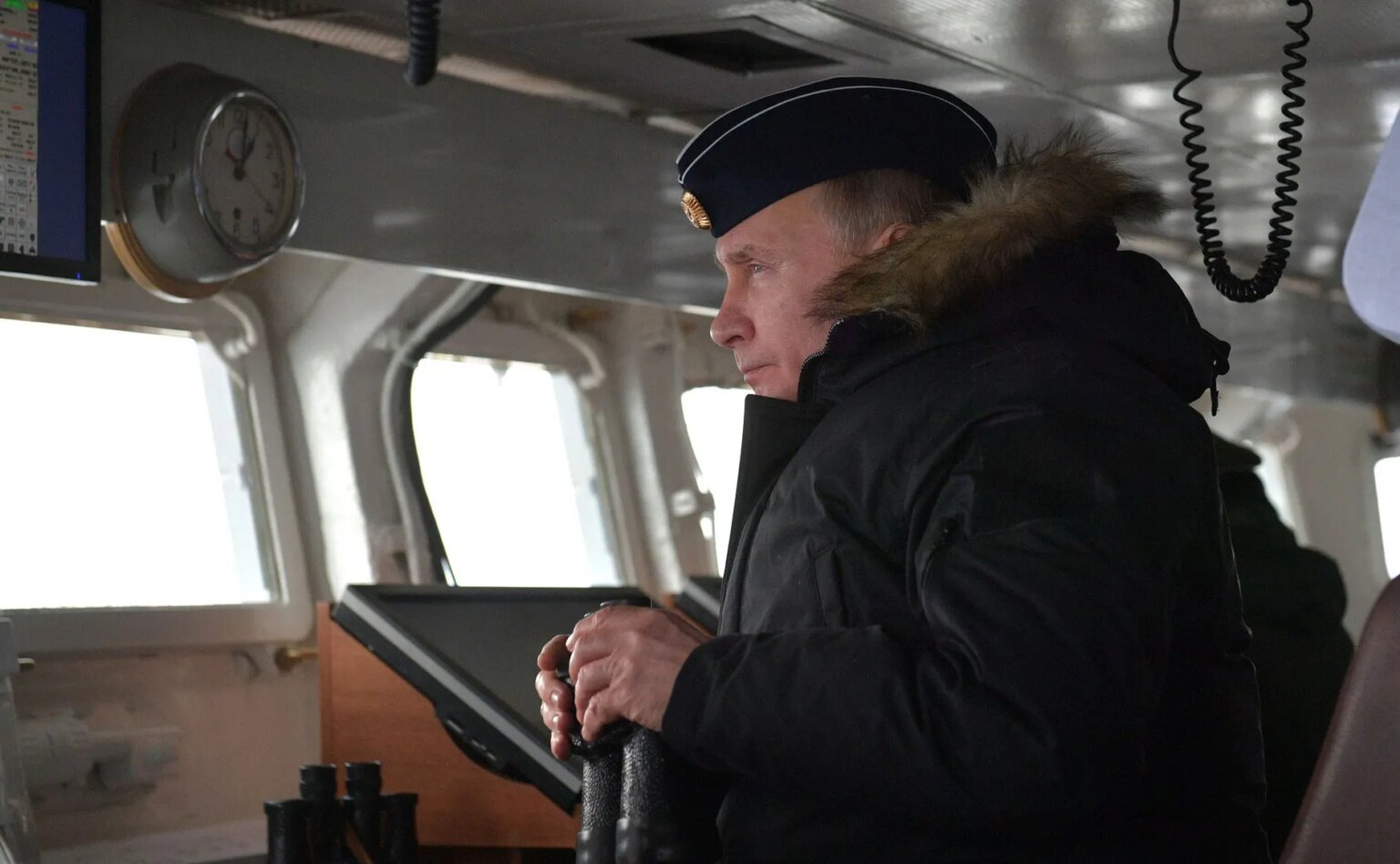The Trump administration is warning of “serious consequences” over Russia’s plans to open a naval base in war-torn Sudan. News of the development of the base has triggered an unusual warning from the State Department.
A State Department spokesperson told Fox News Digital, “We encourage all countries, including Sudan, to avoid any transactions with Russia’s defense sector.”
The Kremlin appears to be desperate to join the Horn of Africa global powers “naval club,” with its approved plans for a base for warships and nuclear-powered submarines at Port Sudan. This is not far down the Indian Ocean coast from Djibouti, where there are U.S. and Chinese bases. With the new Syrian government likely to kick the Russians out of their base in Tartus, Port Sudan would be Russia’s only foreign naval base.
“Moscow views Sudan, because of its strategic location, as a logical place to expand Russia’s footprint into Africa, which Putin views as a key place of geopolitical confrontation with the United States and China,” Rebekah Koffler, a strategic military intelligence analyst, told Fox News Digital.
WORLD FORGETS ‘CATASTROPHIC’ WAR IN SUDAN AS RUSSIA, IRAN, OTHERS REPORTEDLY FEED FIGHTING WITH ARMS
“Russia views the U.S. and China as its top adversaries, with whom Moscow may in the long-term have a kinetic conflict. Hence, Putin wants intelligence and military capabilities stationed close to the U.S. Djibouti base and Chinese facilities,” she said.
“Given that the U.S. and China already have [a] naval presence off of the Horn of Africa,” Koffler added, “Russia is looking at Port Sudan as a logistics hub for weapons transfers, storage of military hardware ammunition, all sorts of war-fighting capabilities.”
“The potential Russian naval logistics facility in Sudan would support Russian power projection in the Red Sea and Indian Ocean,” John Hardie, deputy director of the Russia Program at the Foundation for Defense of Democracies (FDD), told Fox News Digital. He added that “this issue has gained greater importance for Moscow, given the uncertainty over the future of its Tartus naval logistics facility.”
A Russian naval base in the Indian Ocean has strategic military implications — it’s a relatively short sailing distance to the Red Sea and the Suez Canal, a choke point through which an estimated 12% of the world’s shipping passes, while 61% of global oil tanker traffic is also said to use the canal. Koffler said this poses a significant security threat.
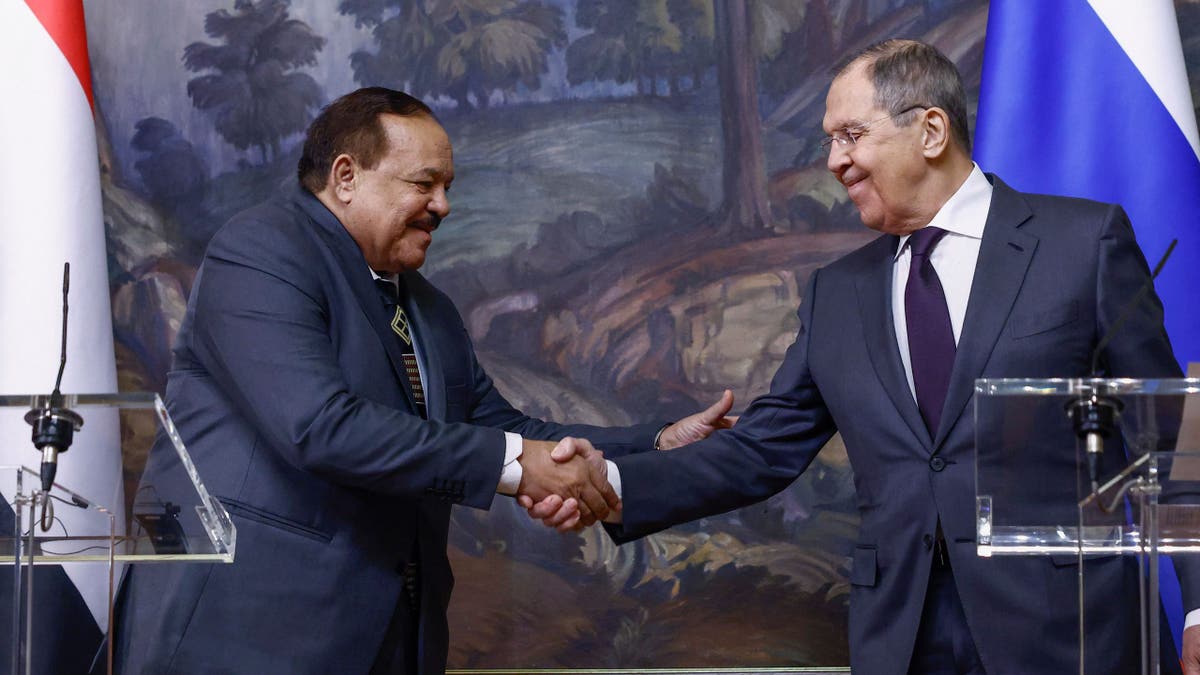
“If Russia perceives an impending escalation against Russia, let’s say in Ukraine — such as an impending deployment of NATO forces or draconian economic measures designed to tank [the] Russian economy — I would not rule out the possibility that Putin could authorize something disruptive to exploit the choke point and destabilize or disrupt global shipping, as a way of deterring Western actions threatening Russia.”
The deal permitting Moscow to build a military base has been given the green light, although there are serious logistical challenges involved. “The agreement between Sudan and Russia was finalized in February, following a meeting between Sudan’s Foreign Minister Ali Yusef Sharif and Russia’s Foreign Minister Sergei Lavrov in Moscow,” Koffler explained.
US TROOPS IN STANDOFF IN AFRICAN NATIONS AS COLD WAR-LIKE TENSIONS TAKE HOLD ON CONTINENT
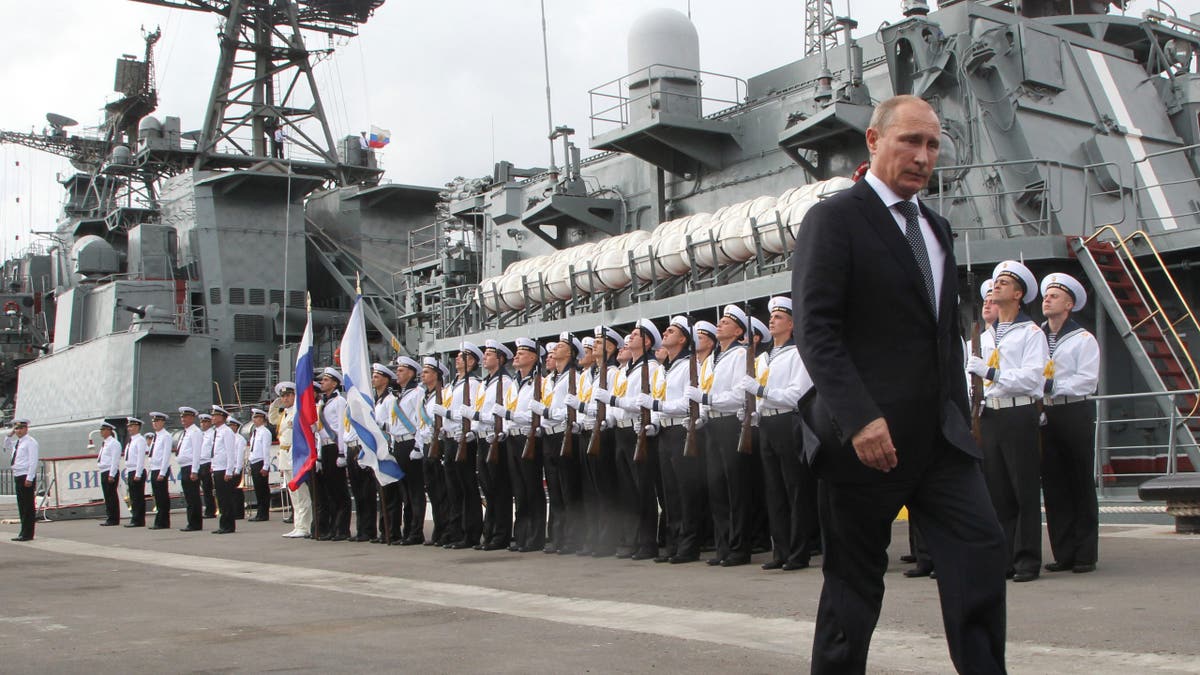
Hence the strongly worded comments to Fox News Digital from the State Department that “the United States is aware of the reported deal between Russia and the SAF [Sudanese Armed Forces] on establishing a Russian naval facility on Sudan’s coast. We encourage all countries, including Sudan, to avoid any transactions with Russia’s defense sector, which could trigger serious consequences, potentially including sanctions on entities or individuals associated with those transactions.
“Moving forward with such a facility or any other form of security cooperation with Russia would further isolate Sudan, deepen the current conflict, and risk further regional destabilization. “
On the (very) dry land that is Sudan, the situation Monday around the city of Al Fasher and the neighboring massive Zamzam refugee camp in the Darfur region is “horrifying,” U.N. Assistant Secretary-General Tom Fletcher posted.
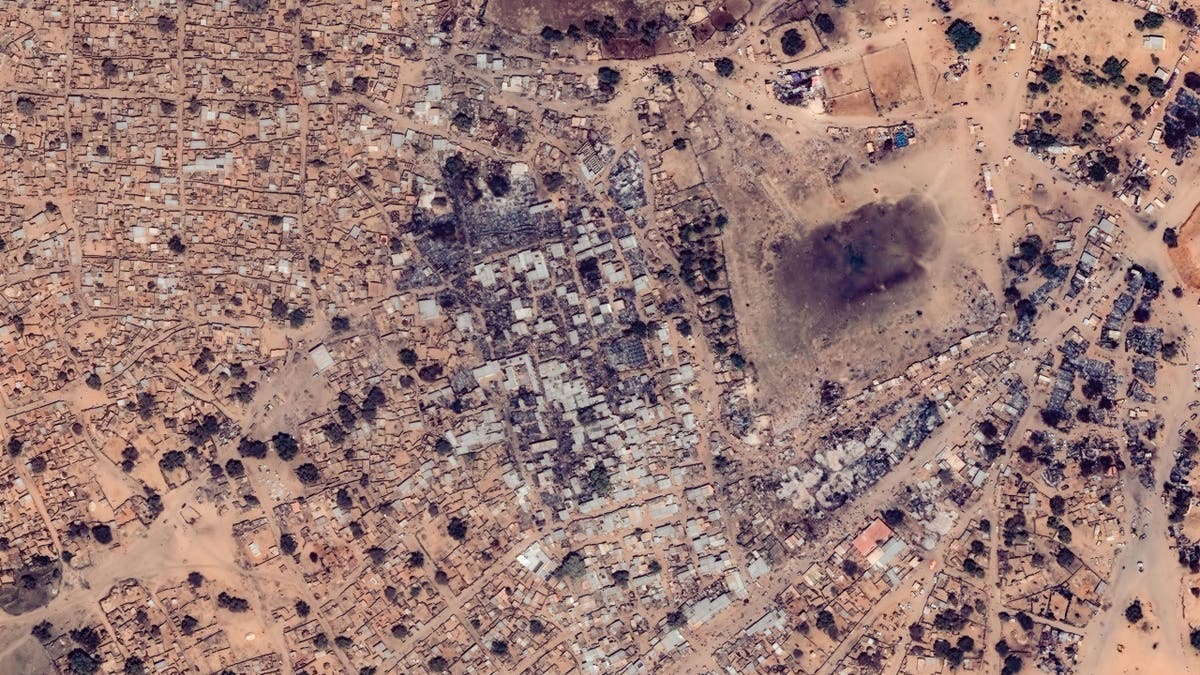
The civil war in Sudan, between the government’s SAF and the rebel Rapid Support Forces (RSF), has just passed its grisly second anniversary. Tens of thousands have been killed, and an estimated 13 million people have been uprooted from their homes. The U.N. describes it as the world’s worst humanitarian crisis, and UNICEF calls it “hell on earth.”
“There can be no overstating the brutality and destructiveness of the RSF assault on Zamzam (refugee camp),” Sudan researcher Eric Reeves told Fox News Digital this week. “The camp that has existed since 2004 is no longer, even as it had grown to more than 500,000 people.”
Ominously, Reeves added that “the real dying has only just begun. Nearly the entire population of Zamzam has fled, and in all directions the threat of RSF violence remains. This creates insecurity of a sort that prevents humanitarians from reaching these scattered people. Tremendous numbers will die either from RSF violence or the lack of food, water and shelter.”
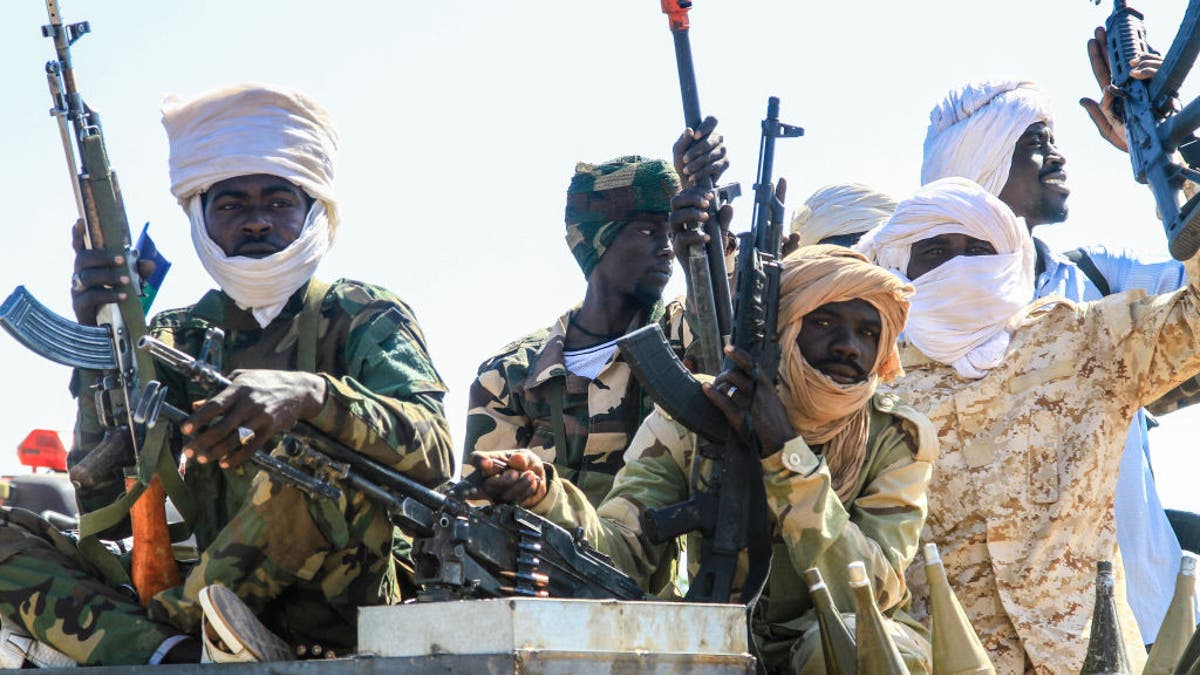
Another 30 were reported killed on Tuesday in a fresh RSF attack on Al Fasher. And just this past week, the RSF rebels announced they are setting up their own government. The State Department told Fox News Digital, “The United States is deeply concerned about the Rapid Support Forces (RSF) and aligned actors’ declaration of a parallel government in Sudan. This attempt to establish a parallel government is unhelpful for the cause of peace and security and risks a de facto partition of the country.”
“It will only further destabilize the country, threaten Sudan’s territorial integrity, and spread wider instability throughout the region. The United States has made clear that our interest is in the restoration of peace and an end to the threats the conflict in Sudan pose to regional stability. The best path to peace and stability is an immediate and durable cessation of hostilities so that the processes of establishing a civilian government and rebuilding the country can begin,” the spokesperson said.

Caleb Weiss, editor of the FDD’s Long War Journal and also a Defections Program Manager at the Bridgeway Foundation, put some of the blame for not ending the Sudanese war on the Biden administration. He told Fox News Digital that it “stopped short of seriously facilitating any sort of meaningful peace talks/mediation/or being tough on outside backers of various groups to really get them to be serious in previous negotiation attempts. This is where the Biden administration failed.”
Weiss continued, “President Trump should continue to be aggressive on sanctioning those committing acts of violence, but also sponsor and back serious peace talks that include both parties, offer financial incentives or even threaten financial penalties, and seriously hold international backers accountable for exacerbating the conflict.”
Read the full article here


